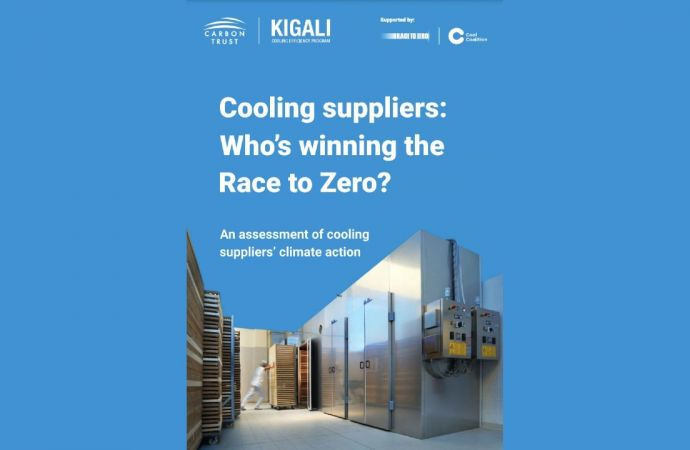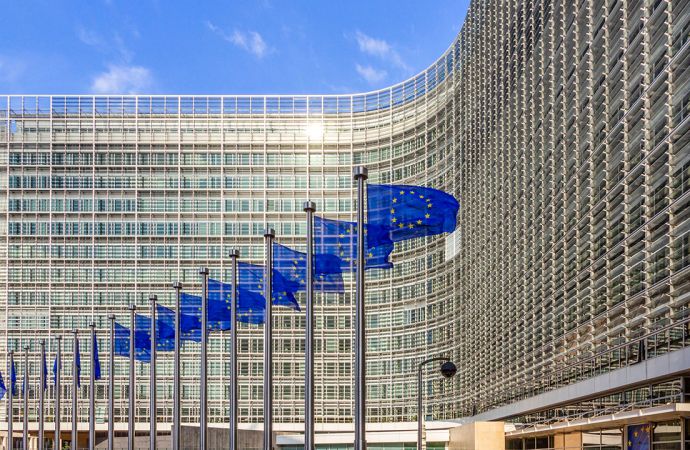The European Parliament Plenary has voted by a large majority in favour of a compromise ‘deal’ on the new EU F-Gas Regulation that had been reached by the EU institutions at the end of 2013. The deal, which among other measures introduces bans for HFCs with GWP≥150 for new equipment in certain refrigeration sub-sectors as well as movable air conditioning appliances, also needs to be formally endorsed by the Council of the EU before it enters into force.

With 644 votes in favour, 19 against and 16 abstentions, the European Parliament on 12 March 2014 gave the green light to the F-Gas compromise ‘deal’ that had been agreed in so called ‘trilogue’ negotiations among the European institutions in December 2013. The deal foresees HFC bans for new equipment in certain sectors and an overall phase down of bulk HFCs by 79% by 2030, measured in CO2 equivalent, compared to average levels in 2009-2012.
HFC bans in new equipment
Among the measures included under the new F-Gas Regulation, HFC bans will likely have the most direct and immediate effect on speeding up the transition to natural refrigerants, with the sectors for which the ban applies likely to see the strongest growth in the uptake of natural refrigerants.
Bans on HFCs in new equipment that were agreed in the negotiation process and adopted by the European Parliament include the following refrigeration and air-conditioning sectors:
Domestic refrigerators and freezers with global warming potential (GWP) ≥ 150 - as of 2015
- with GWP ≥ 150 - as of 2022
Paving the way for international action on HFCs
New EU F-Gas rules to become effective as of 2015
A final step in the decision-making process remains the formal adoption of the Regulation by Member States represented in the Council of the EU, which is foreseen in spring 2014. Afterwards, the Regulation will be published in the Official Journal of the EU and will come into force 20 days later. The new rules will start to apply as of 1 January 2015.
I think that with this F-Gas Regulation we have put a further brick on the wall for protecting ourselves from climate change”, said Jo Leinen, Member of the European Parliament and Shadow Rapporteur on the file. “We see that a number of supermarket chains are now using the alternative methods for the refrigeration systems, the same will also apply very soon to air conditioning systems. The sooner we reduce the use of ODS and f-gases the better”.
HFC bans in new equipment
Among the measures included under the new F-Gas Regulation, HFC bans will likely have the most direct and immediate effect on speeding up the transition to natural refrigerants, with the sectors for which the ban applies likely to see the strongest growth in the uptake of natural refrigerants.
Bans on HFCs in new equipment that were agreed in the negotiation process and adopted by the European Parliament include the following refrigeration and air-conditioning sectors:
Domestic refrigerators and freezers with global warming potential (GWP) ≥ 150 - as of 2015
- Refrigerators and freezers for commercial use, hermetically sealed
- with GWP ≥ 150 - as of 2022
- Stationary refrigeration equipment (expect that designed to cool below -50°C (GWP ≥ 2500) – as of 2020
- Multipack centralised refrigeration systems for commercial use with capacity ≥ 40kW with GWP ≥ 150 – as of 2022, except in the primary refrigerant circuit of cascade systems where f-gases with a GWP < 1500 may be used
- Movable room AC, hermetically sealed (GWP ≥ 150) – as of 2020
- Split AC containing < 3kg of HFCs (GWP ≥ 750) – as of 2025
Paving the way for international action on HFCs
By this regulation we speed up innovation, we spread the best practices, in short we actually pave the way with a very good example from Europe, so that now others can follow this example” said EU Climate Commissioner Connie Hedegaard during a debate one day before the Plenary vote in the European Parliament in Strasbourg. “That is what we need, to address f-gases not only in Europe but also internationally. I think we have taken a very important step”.
We have to focus on the international aspect as well. We are setting a precedent here”, said Bas Eickhout, Member of the European Parliament and Rapporteur on the new EU F-Gas Regulation, negotiating the file for the European Parliament during the 11 March 2014 debate in the European Parliament. “We have set the bar very high here at the EU for that other parts of the world, China and the USA. It is up to them, I think, to follow our example now. We want to get rid of these f-gases, we want to support and stimulate the new economy, which will have a knock on effect further down the line – get rid of these f-gases, that is what we are aiming for”.
New EU F-Gas rules to become effective as of 2015
A final step in the decision-making process remains the formal adoption of the Regulation by Member States represented in the Council of the EU, which is foreseen in spring 2014. Afterwards, the Regulation will be published in the Official Journal of the EU and will come into force 20 days later. The new rules will start to apply as of 1 January 2015.
MORE INFORMATION
Related stories



